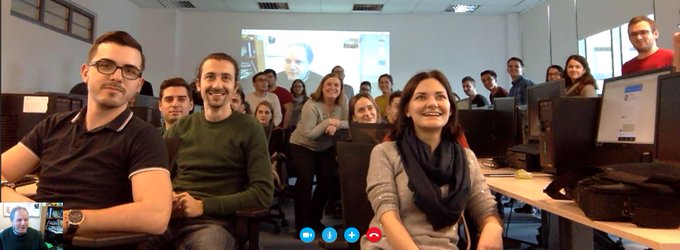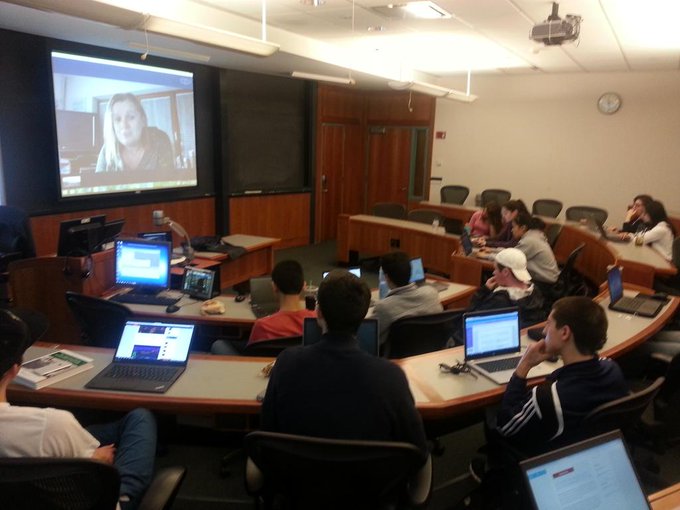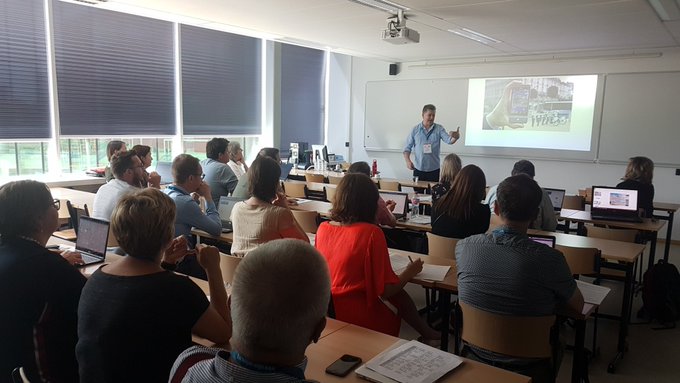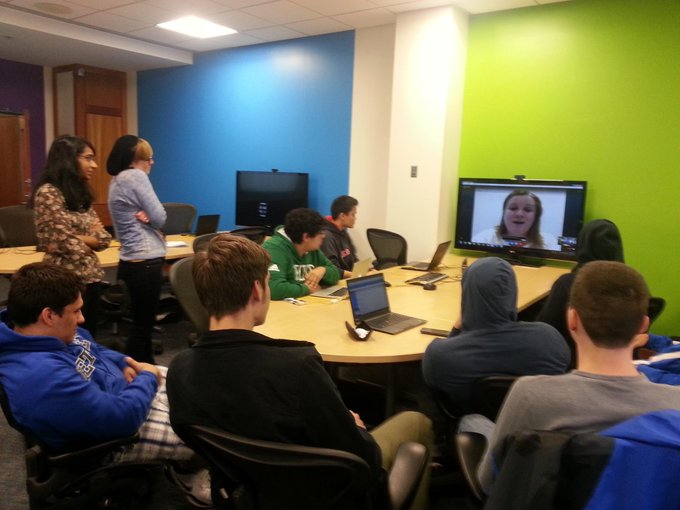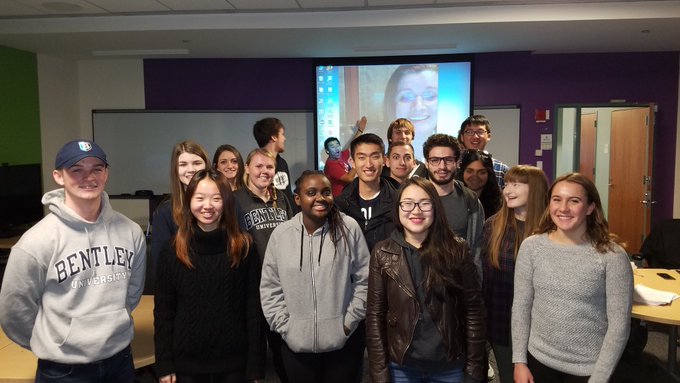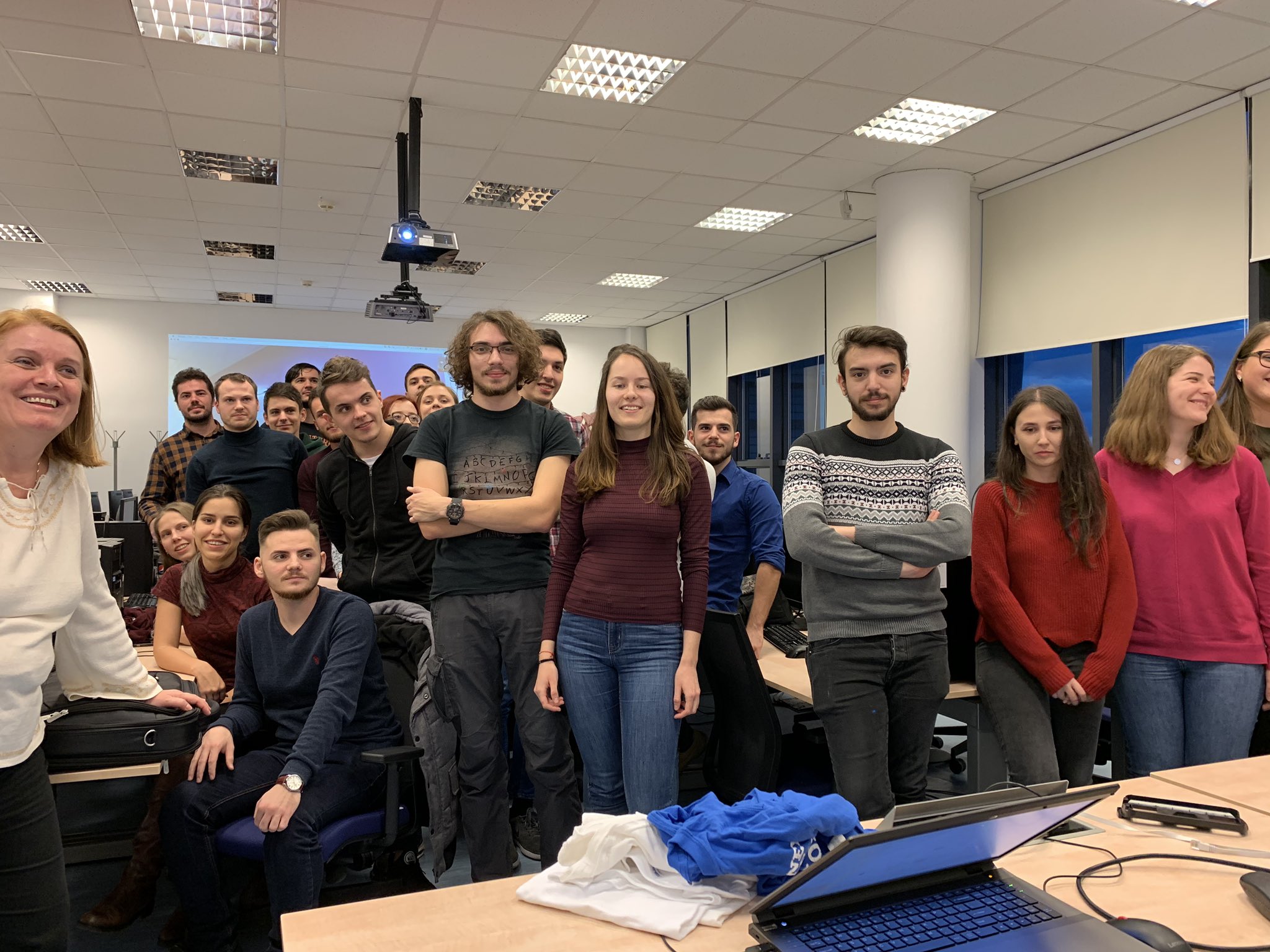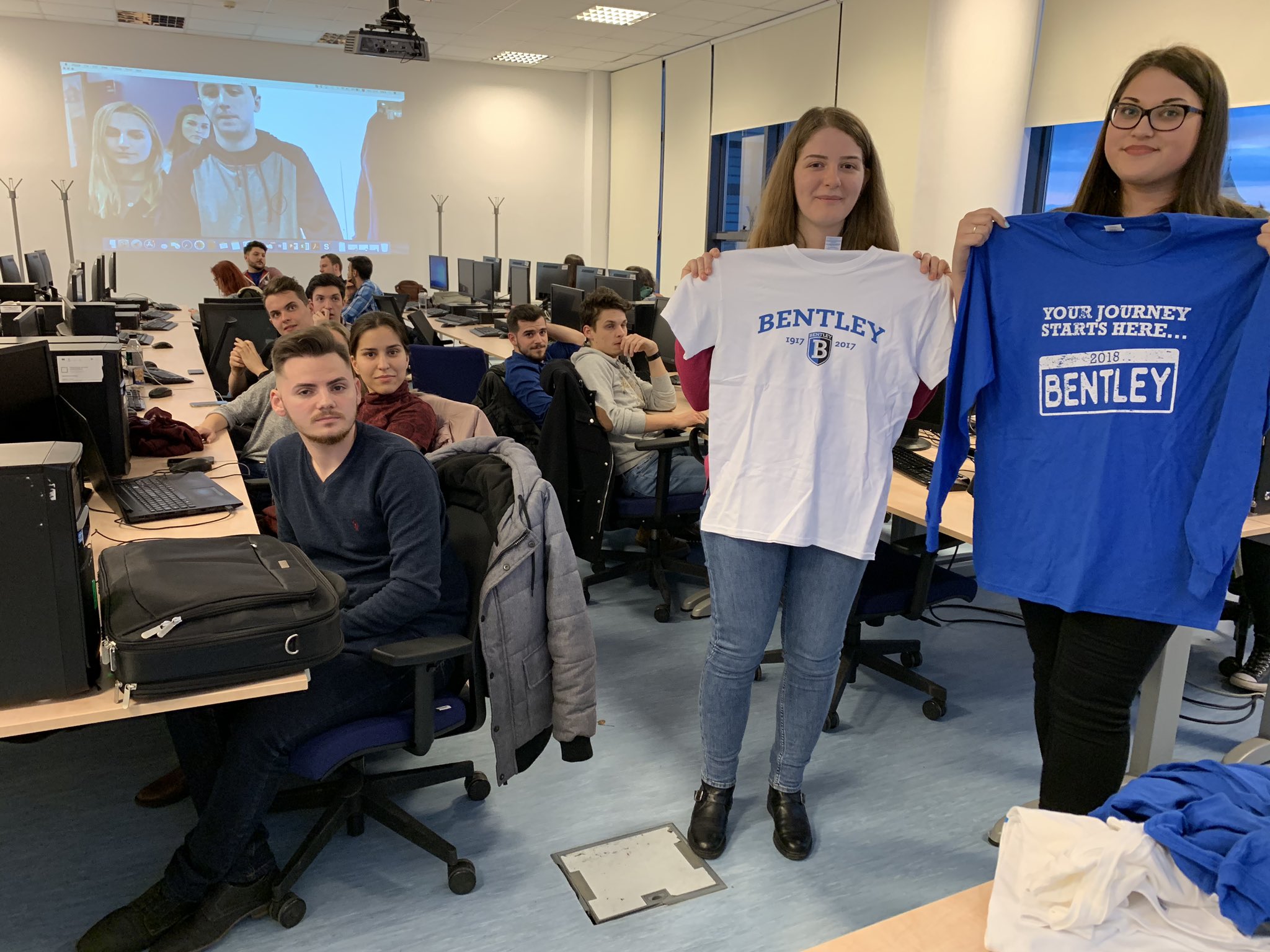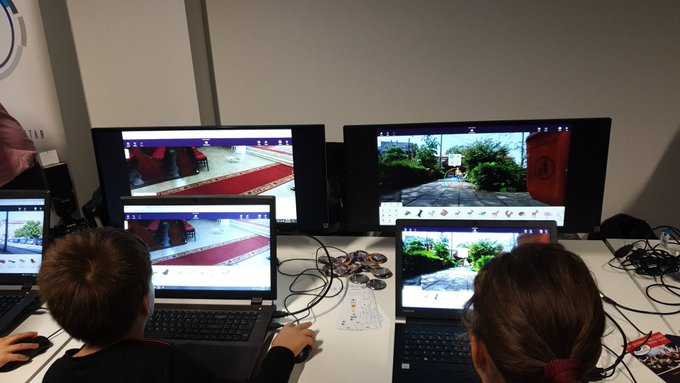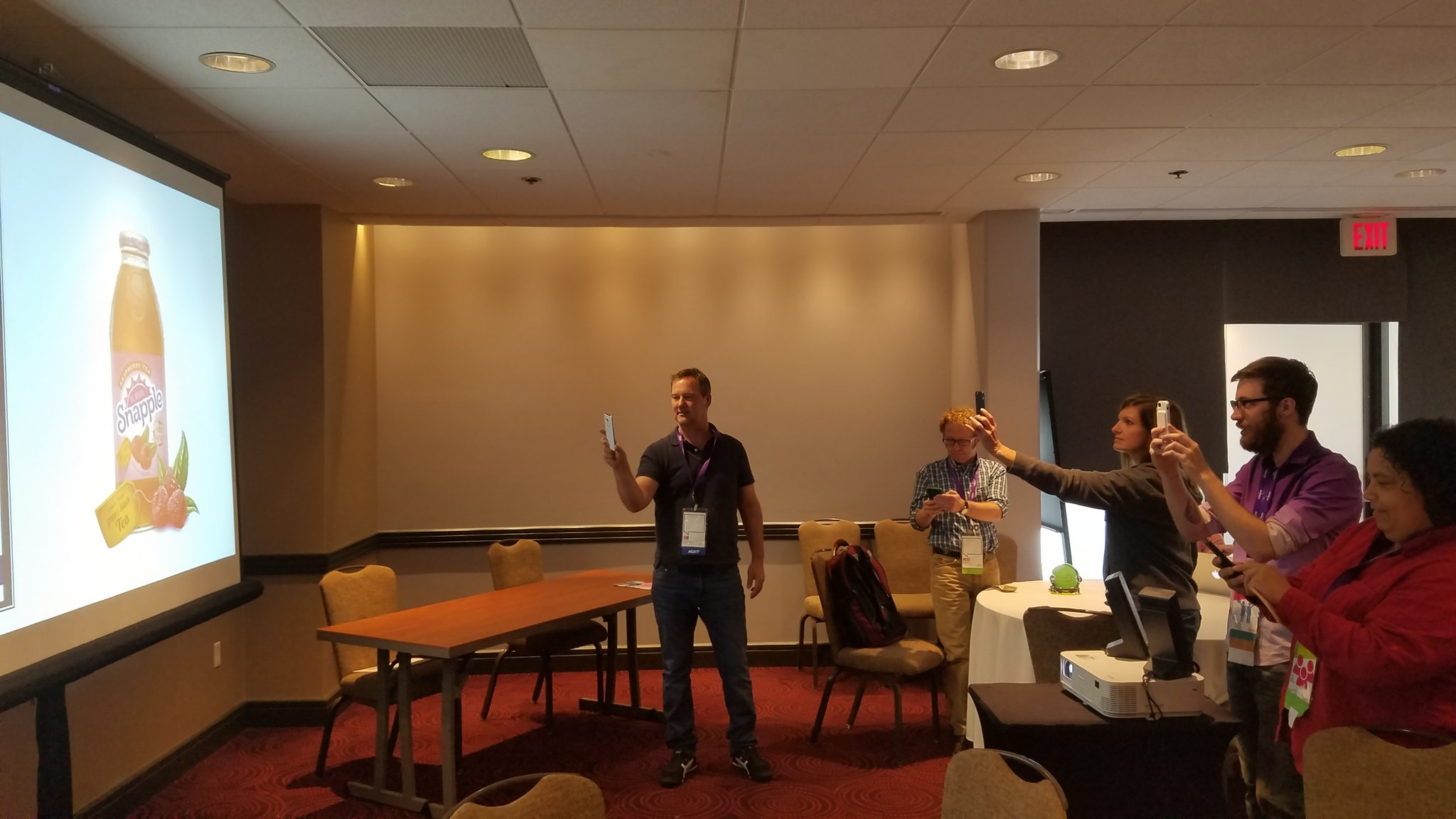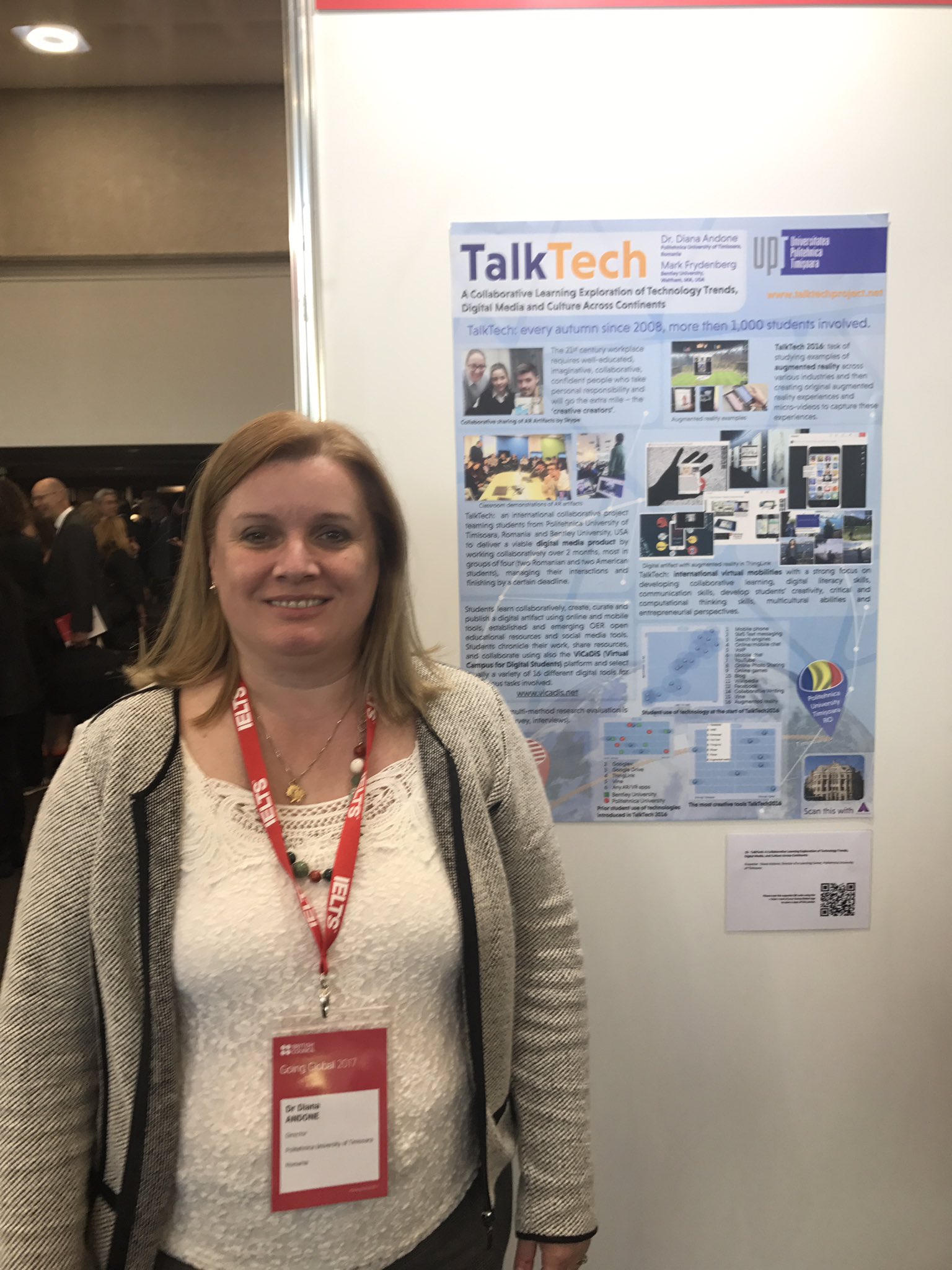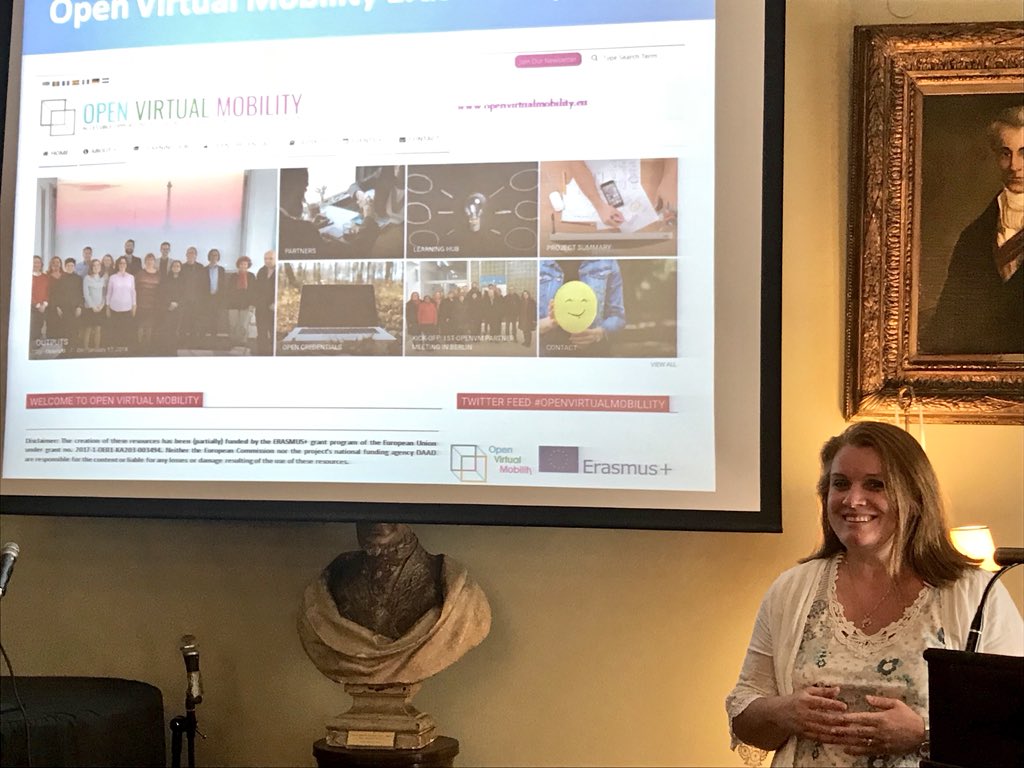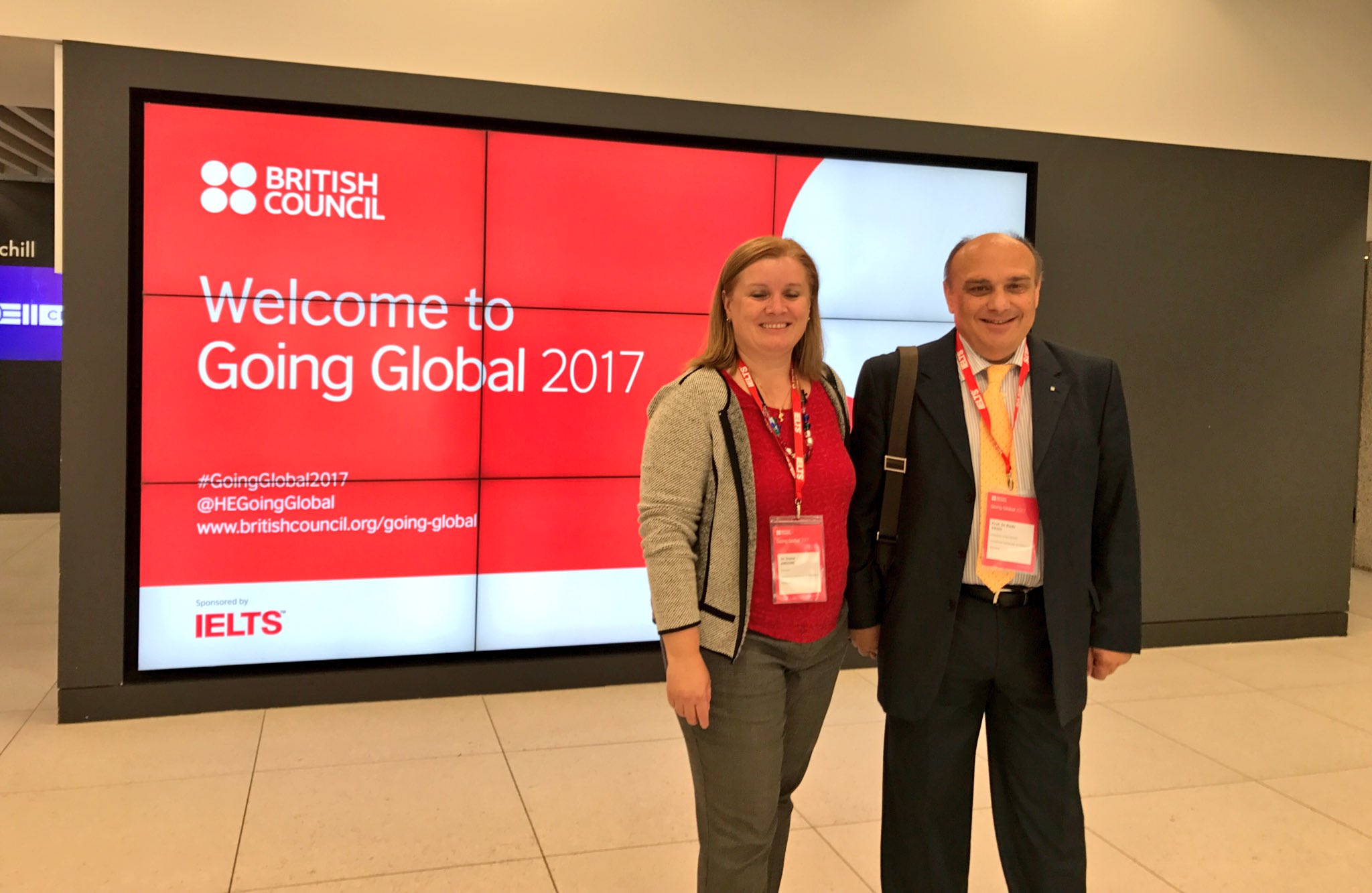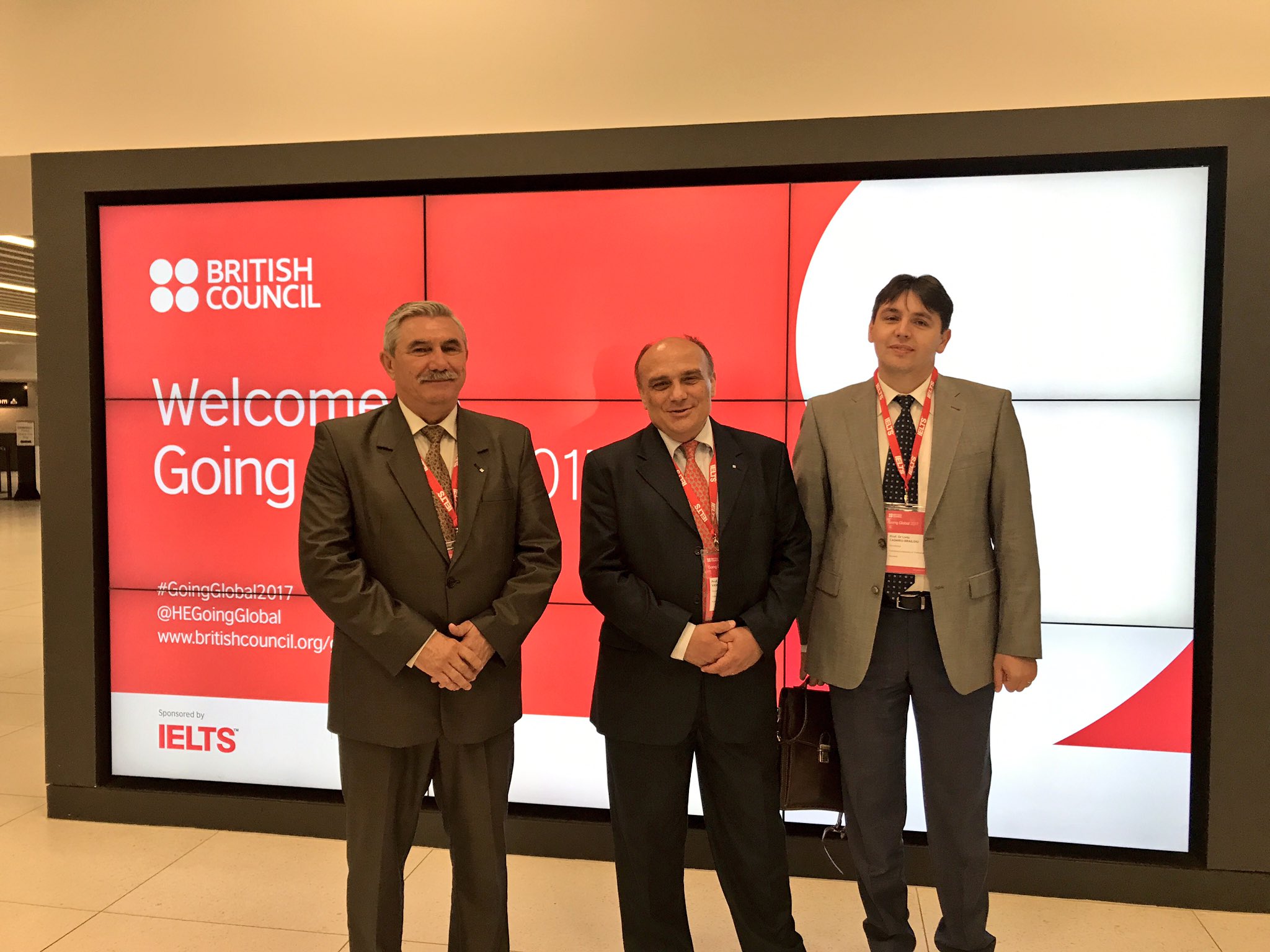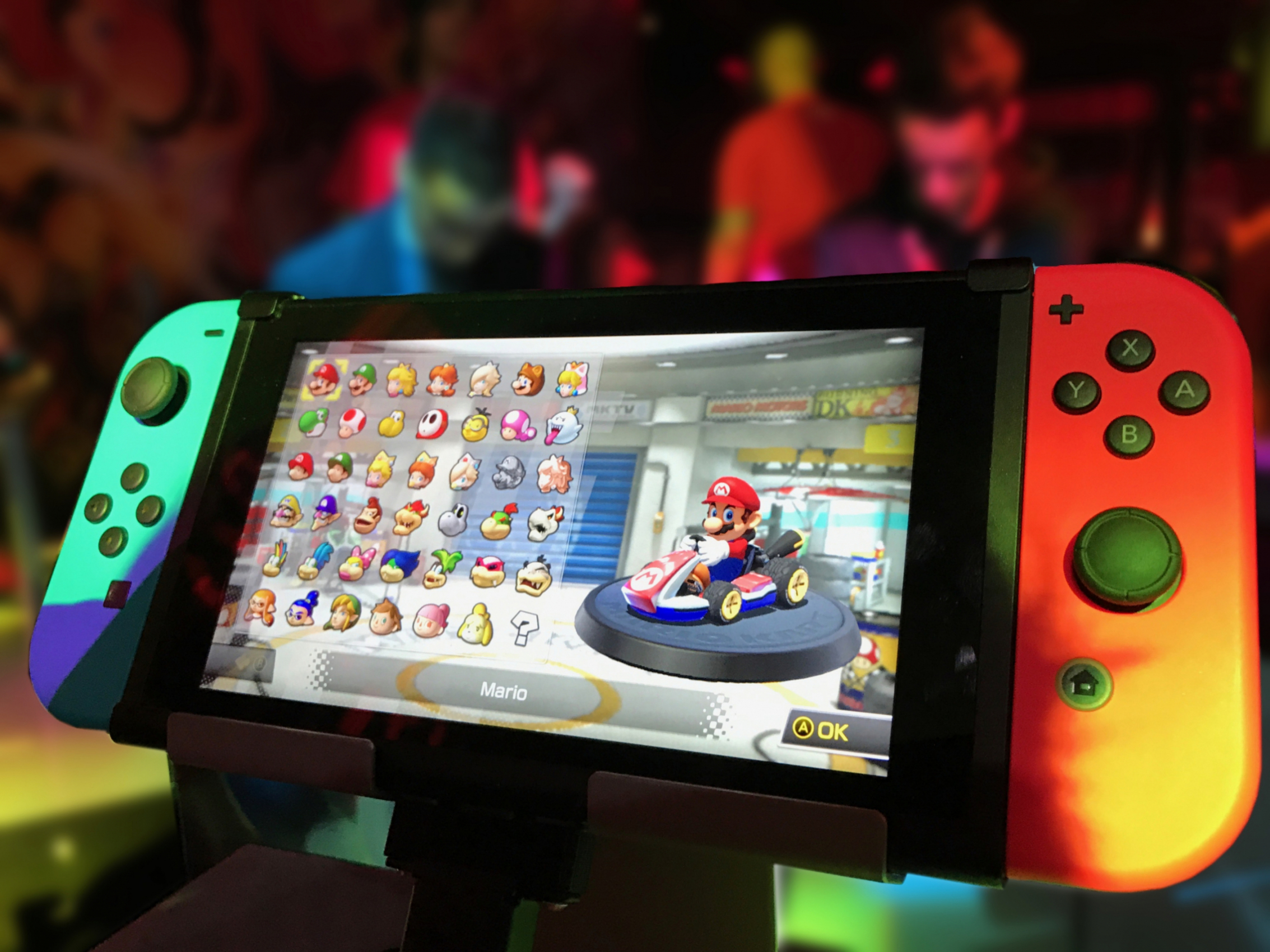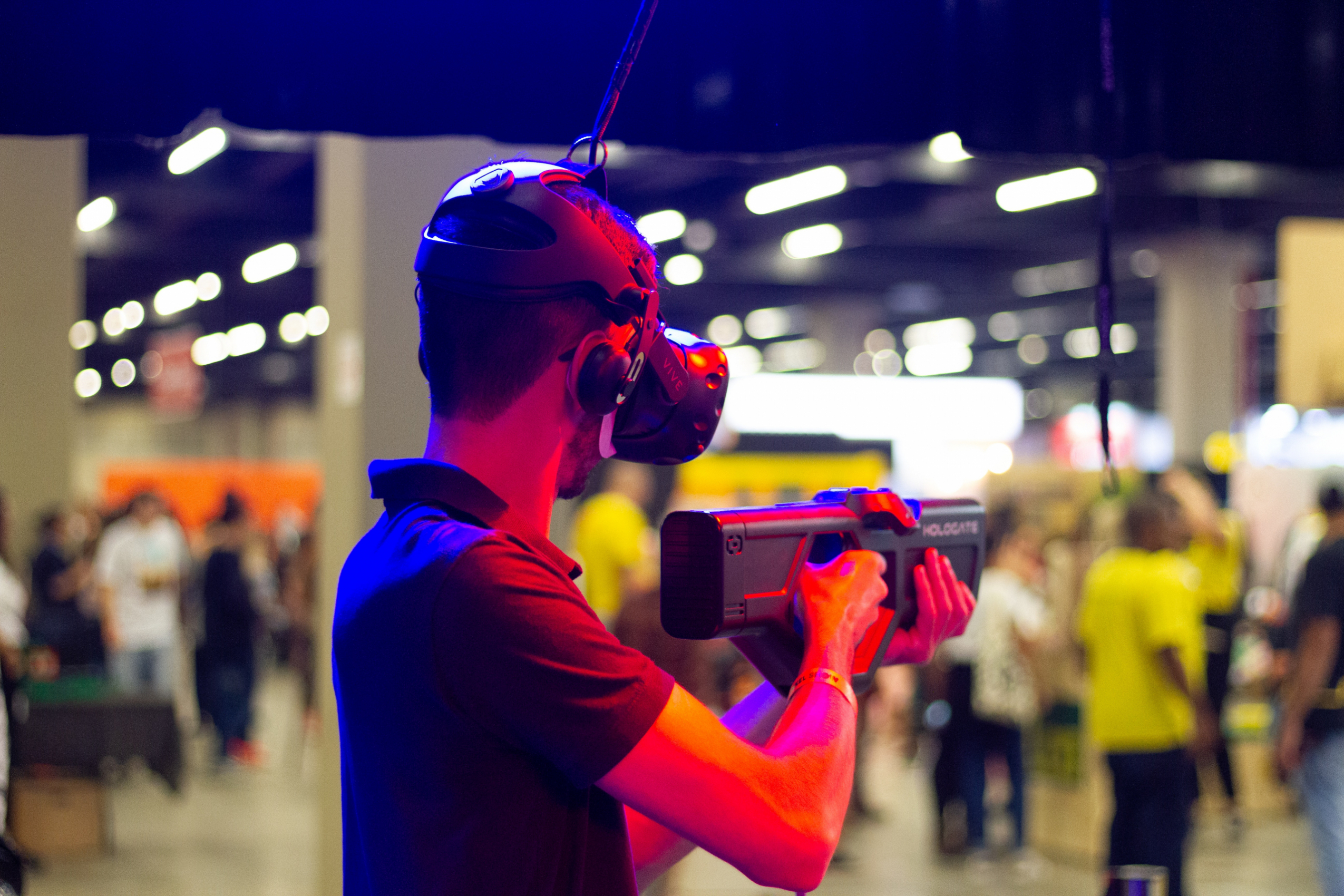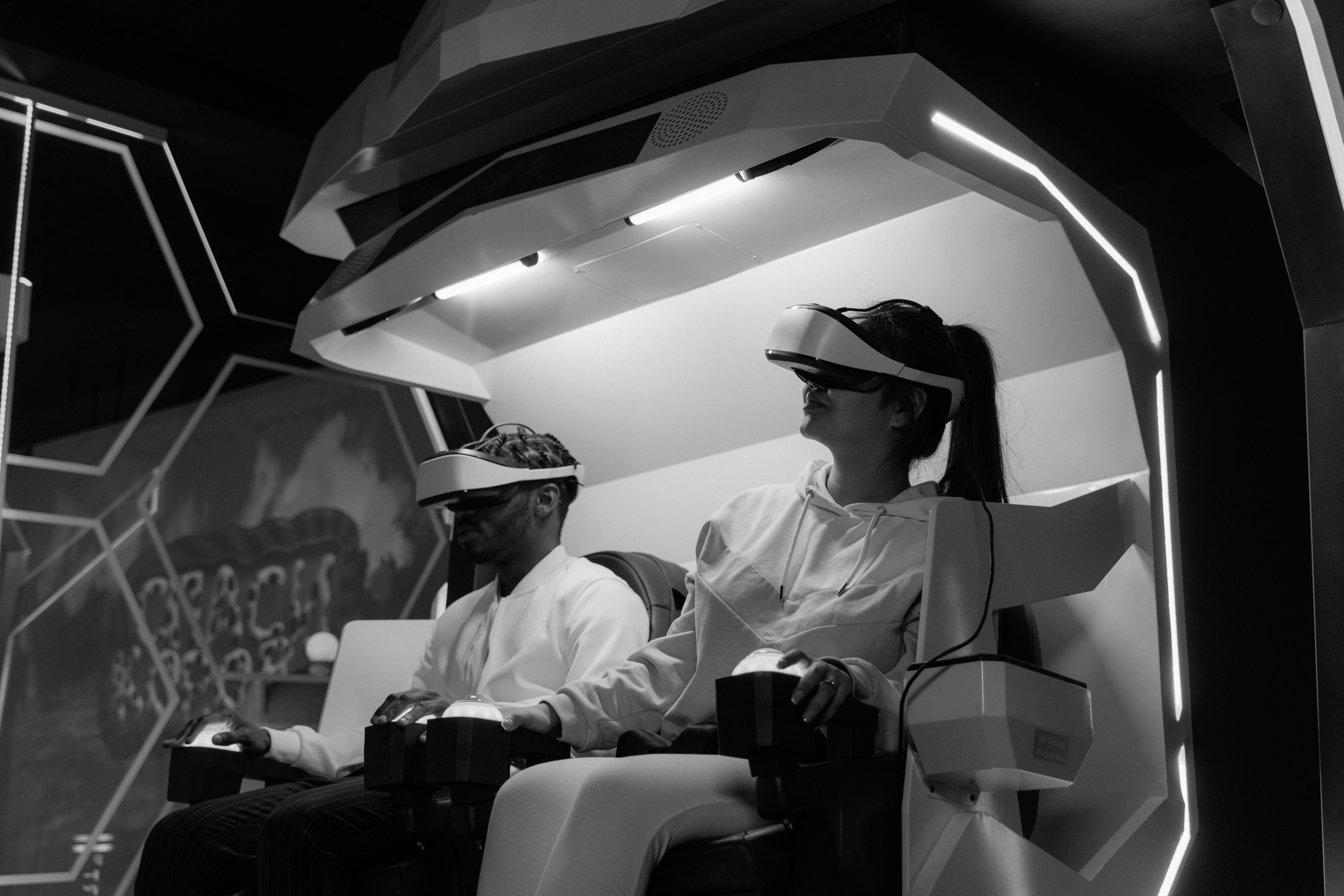About TalkTech Project
TalkTech is a collaboration between Dr. Diana Andone, the director of the Center for Electronic Learning at University Politehnica of Timisoara, and Mark Frydenberg, Sr. Lecturer of Computer Information Systems at Bentley University, in Waltham, MA, USA. The project explores technology, digital media and culture across continents.
This project pairs students from Bentley’s IT 101 (Introduction to Information Technology Concepts) and UPT’s Technologies of Multimedia courses to work together each fall semester to explore a current aspect of technology. Students must figure out which tools to use for communication and collaboration, as they research some aspect of technology and create digital media to share their results online. The theme of the project in 2018 was Digital Culture Using Virtual Reality.
Immersive Technologies were the vehicle with which we encouraged students to develop tech literacy skills and share international culture in a collaborative project as members of global teams. Participants visited similar venues in their own countries (a sports arena, a Starbucks, a university library, a mobile phone store, a public square or landmark), and create VR artefacts that they could share and view with their international partners. Students created scenes from each country in the same VR project with a button to “teleport” them from one country to another.
Student learning is evidenced in their projects, which required demonstrating proficiency with collaboration and communication tools, mobile devices, moving information across platforms and devices, using the Internet as a research tool, creating multimedia, troubleshooting networking issues, and managing a seven-hour time difference when communicating with their international partners.
The project also resulted in two best paper awards, first, at EDSIGCON 2017, with our paper Enhancing and Transforming Global Learning Communities with Augmented Reality and also at the 2018 IEEE International Conference on Advanced Learning Technologies (ICALT), with our paper Open Virtual Reality Project to Improve Students’ Skills .
During the past ten years, we have published and presented more than 15 journal and conference papers related to our work at conferences such as IEEE ICALT, ISECON/EDSIGCON, EdMedia, and IADIS e-Learning, and in journals such as Journal of Information Systems Education, Information Systems Education Journal, and ITSE (Interactive Technology and Smart Education) Journal, and a book chapter from our participation at the Manchester AR/VR conference in 2017 was published in 2019 in a volume by Springer.
TalkTech Photo Gallery

Publications
TalkTeck’s questions stand as a base for the most intruiguing case papers of the digitalized accademical world.

Presentations
TalkTeck projects, have been presented in international dedicated events.

Media Articles
TalkTeck promotes media articles that can stimulate our minds, and make us enhance our creativity.

Theories
Talk Teck experts bring up theories that can clear the path toward a much brighter future.
STUDENTS
PROJECTS
YEARS
PAPERS
Latest TalkTech Themes
Best Papers
Author: Mark Frydenberg
Paper: “Bridging Cultures: Creating Virtual and Augmented Reality for Global Collaborative Learning”
Conference: “Effective Tools, Toys, and Technologies” track at Online Learning Consortium Innovate 2020 conference.
Award: Best in track award
Year: 2020
Romanians did not answer most of our e-mails. to overcome this we just continued to bombard them with e-mails until they finally answered. one of our romanians didnt have a web cam and the other one didn’t have sound. to overcome this we just had to use the chat feature on skype and our applications.
Global collaboration is extremely difficult due to the time zone difference. the language barrier also makes it difficult to interact.
It’s easy to communicate with each other as long we have the Internet / -Internet is the easiest and most common way remote communication;. There are alot of resources on the Internet .
We are from different cultures but as we talk more often about doing the projects, we actually become friends of each other. We don’t really feel like strangers anymore at the end.
Give us more time to work on it from the beginning and have each person record exactly how they participated with the group so their actions are accounted for.
It was interesting to work with international students but ended up being more of a headache than a learning experience
I known new people and I like to think that I have colleagues that I can count on. I like the fact that I discovered a new application (for me is new) that I can use all the time, it is a very handy.




